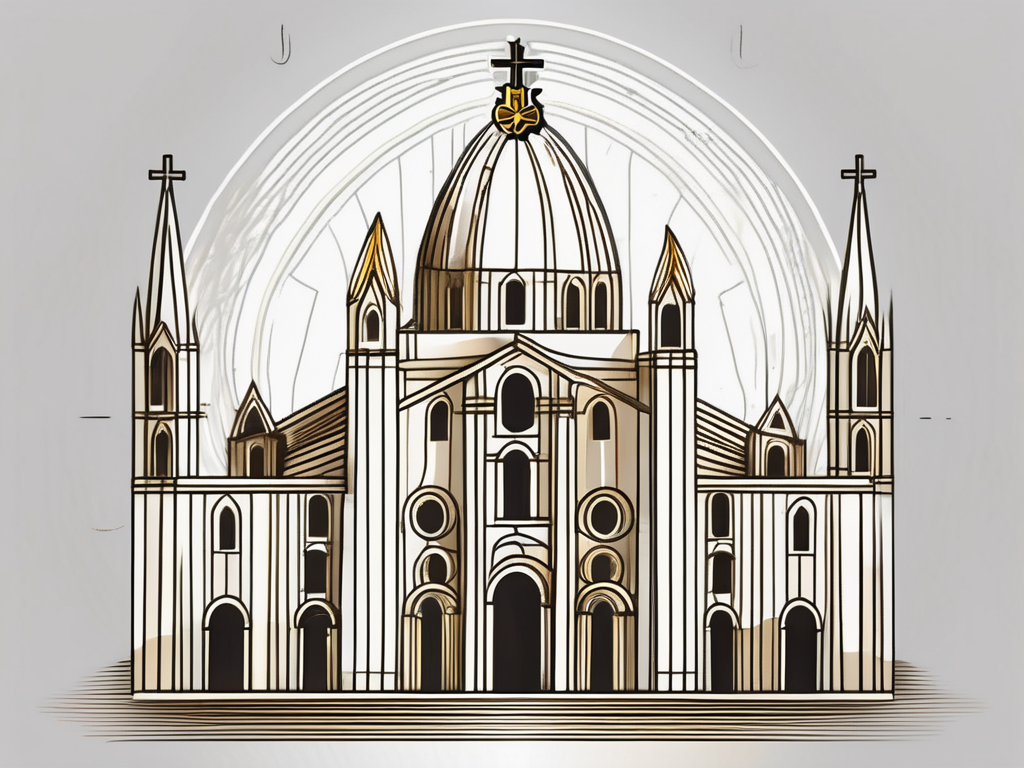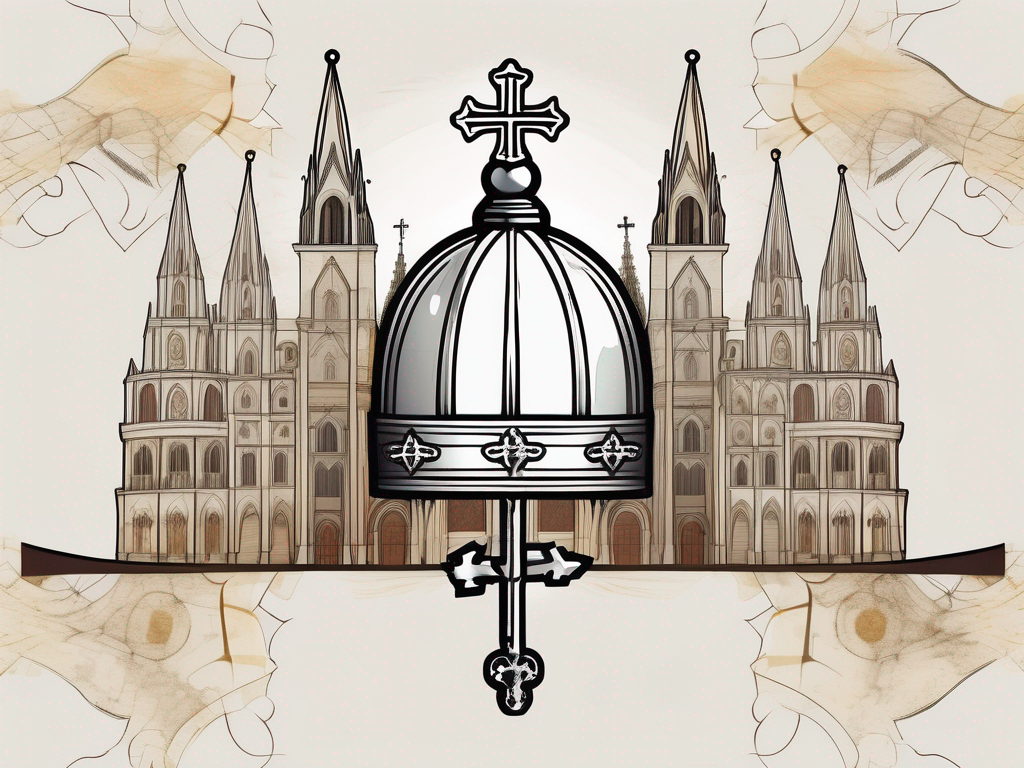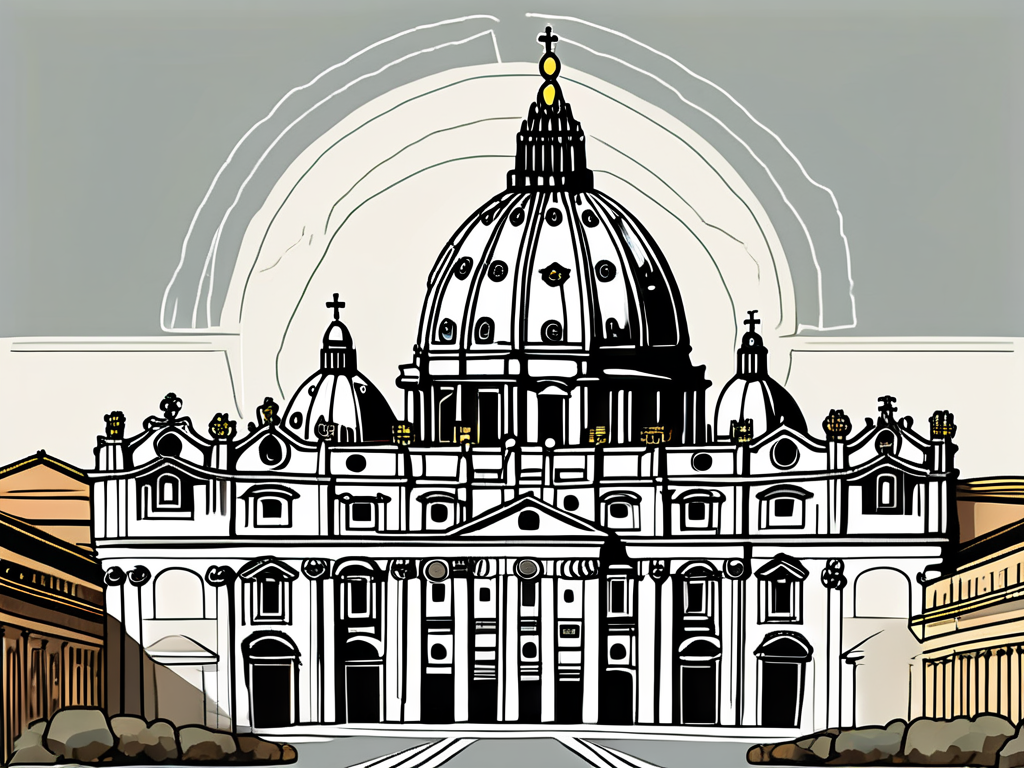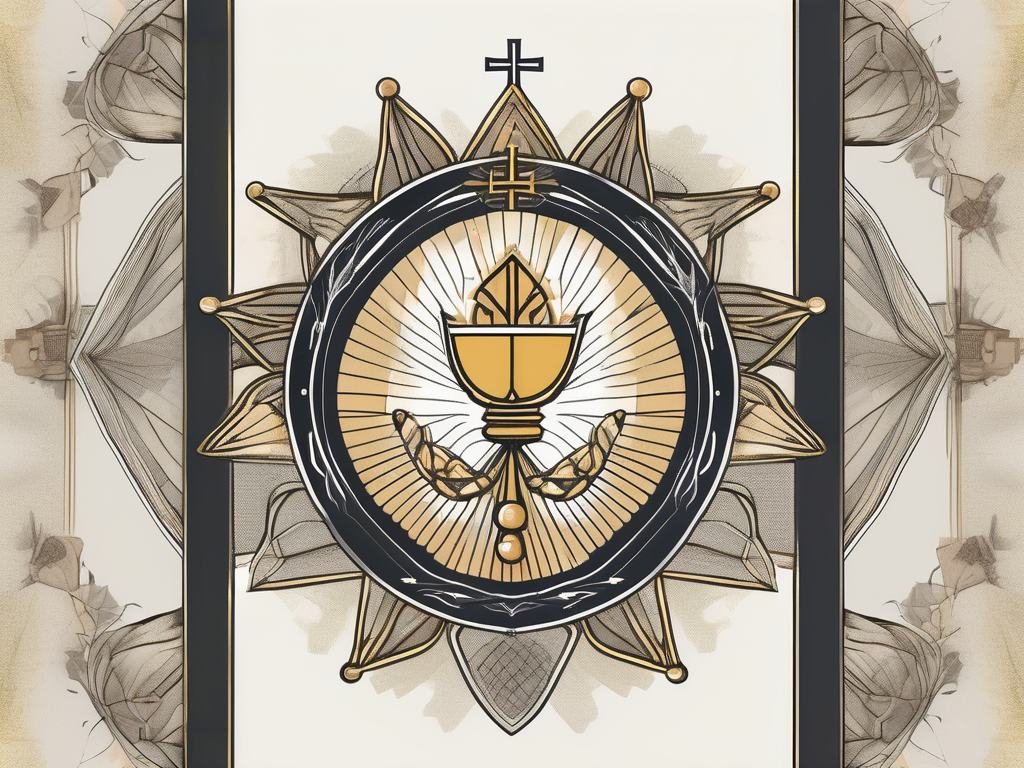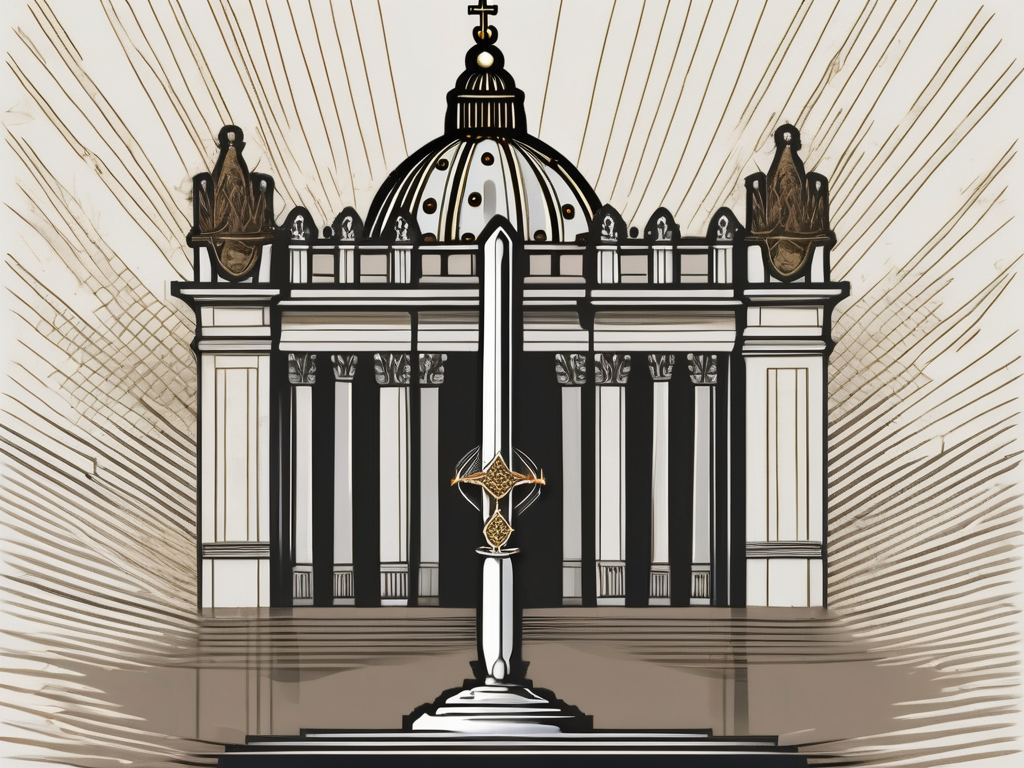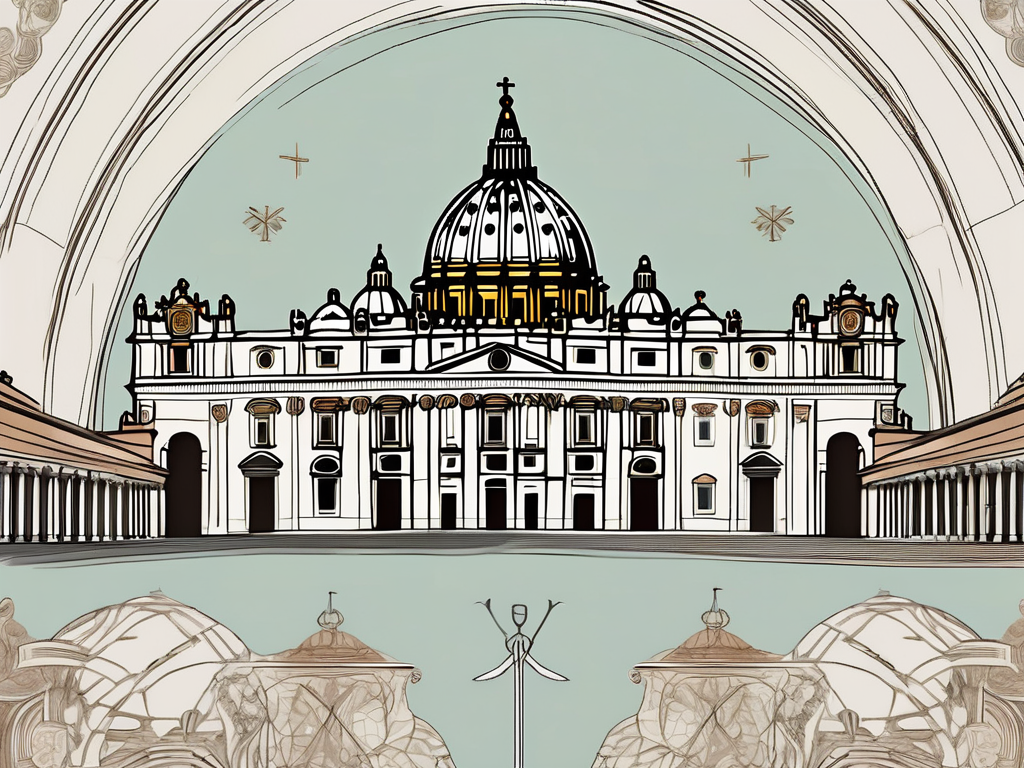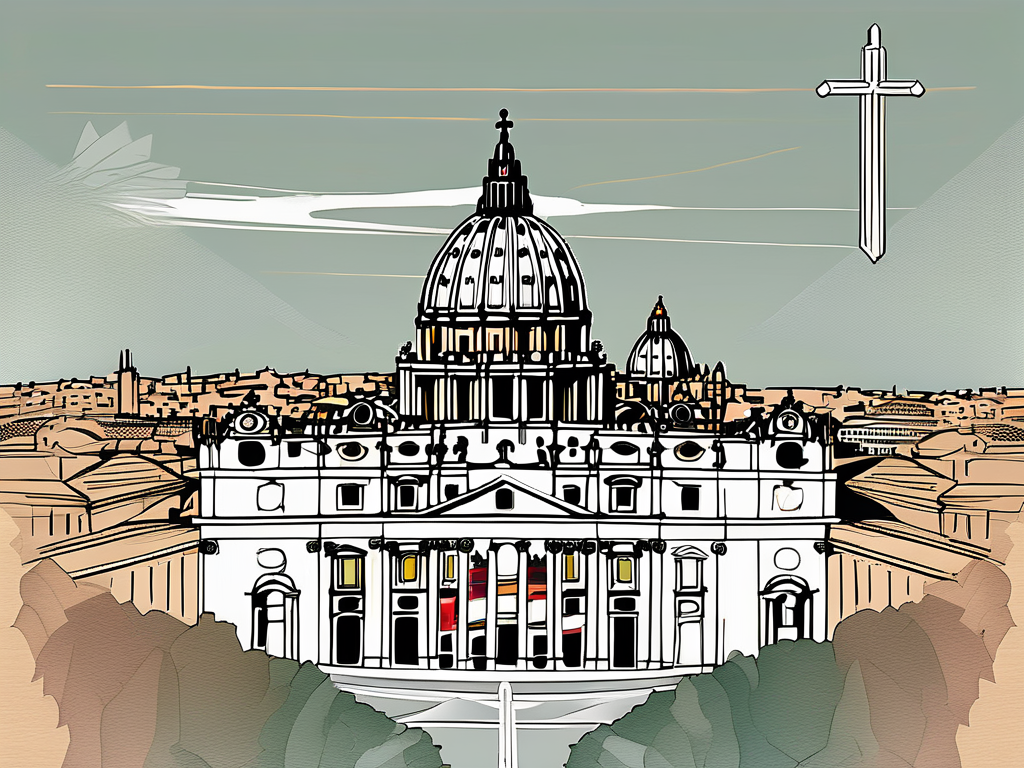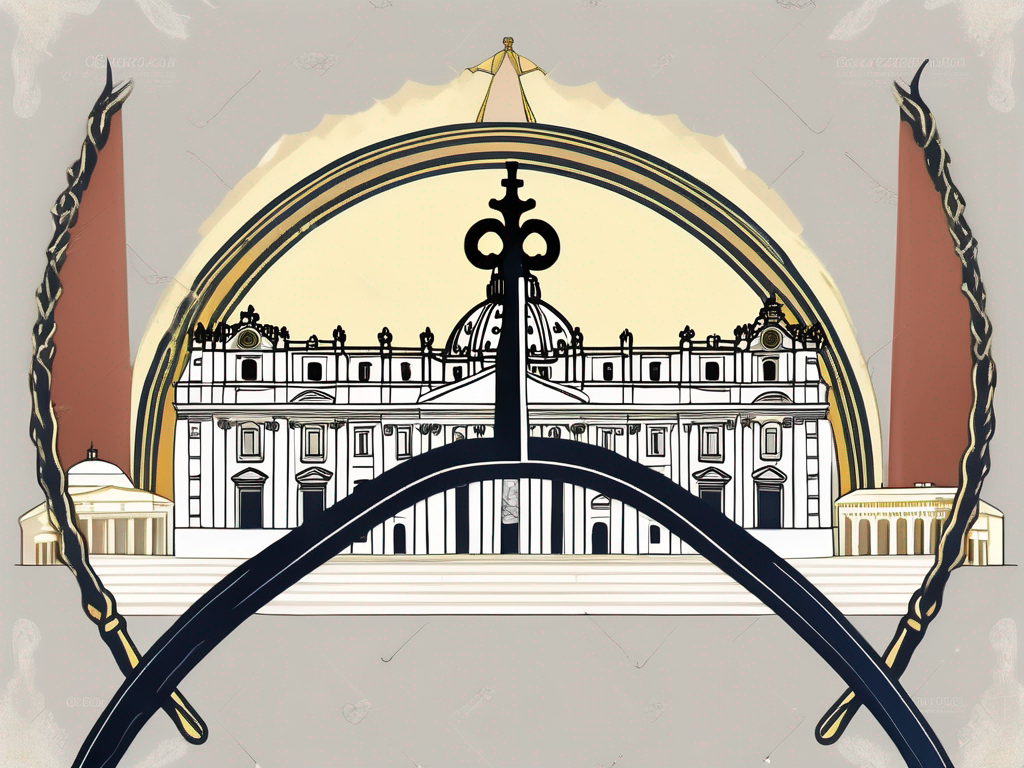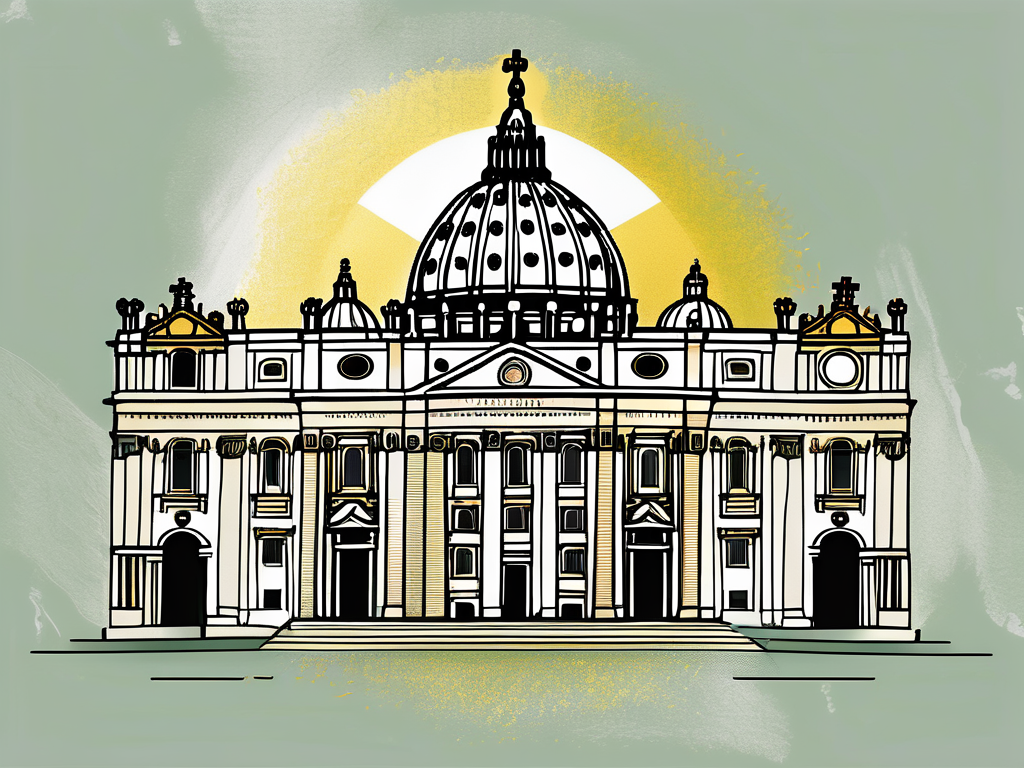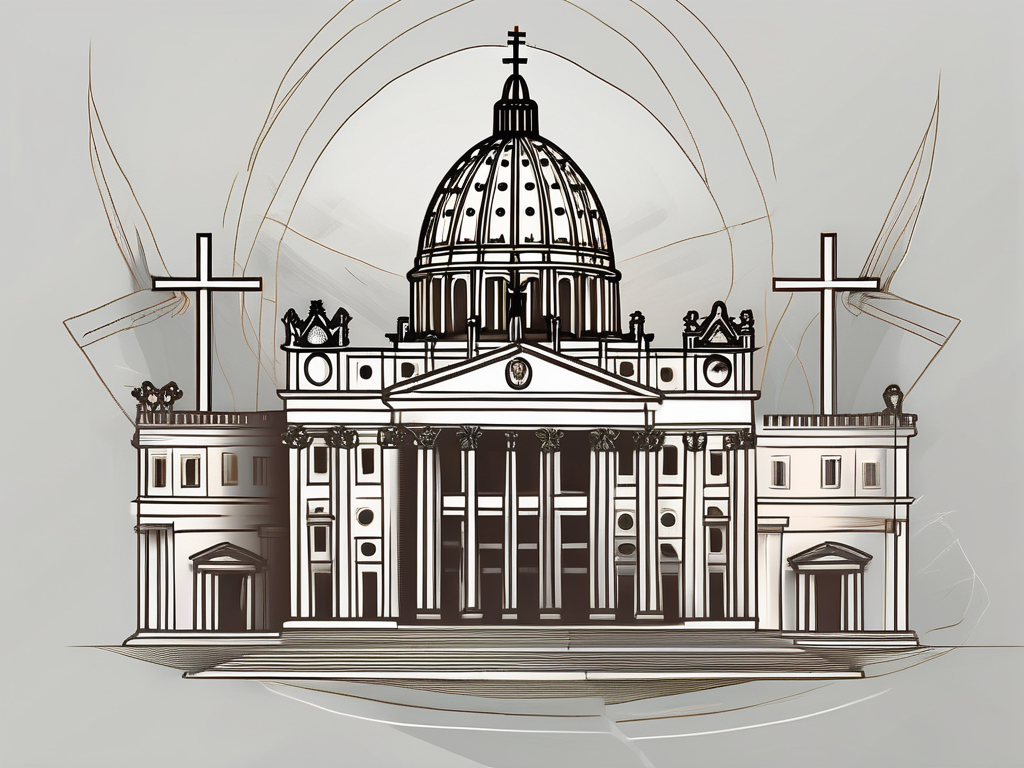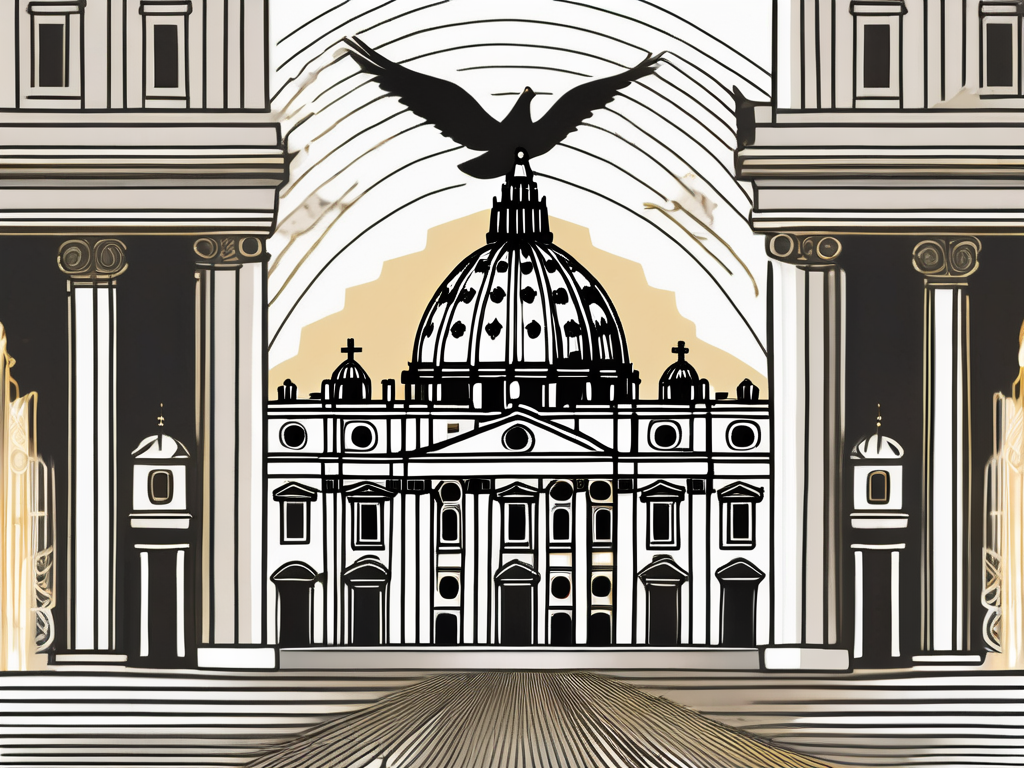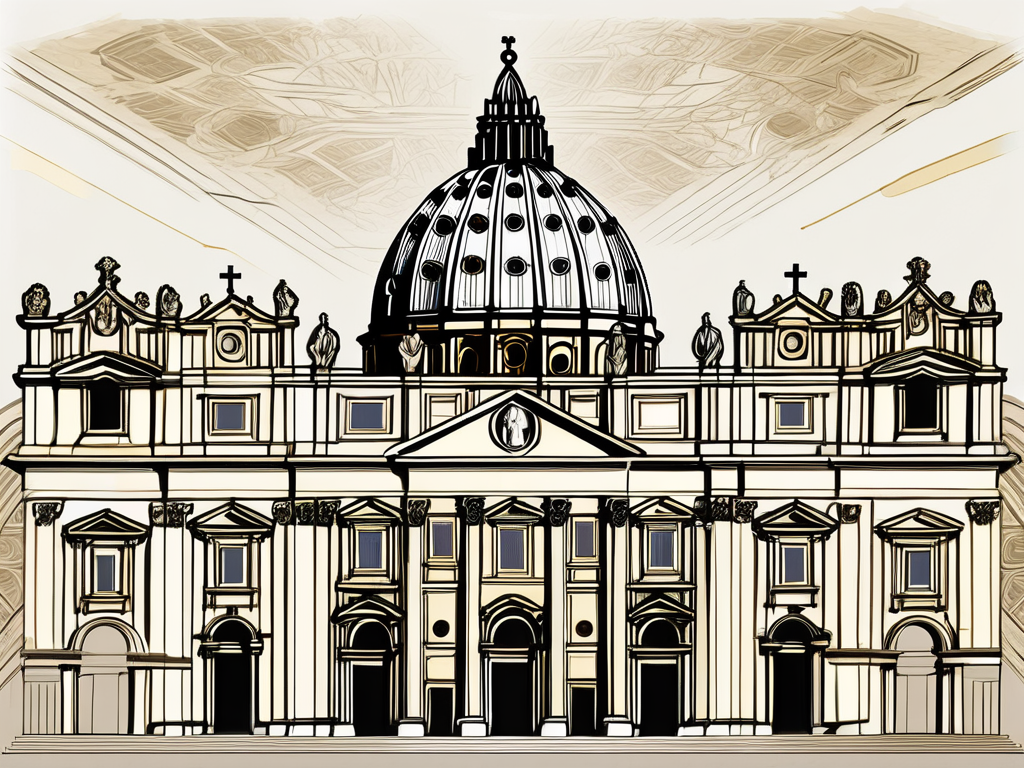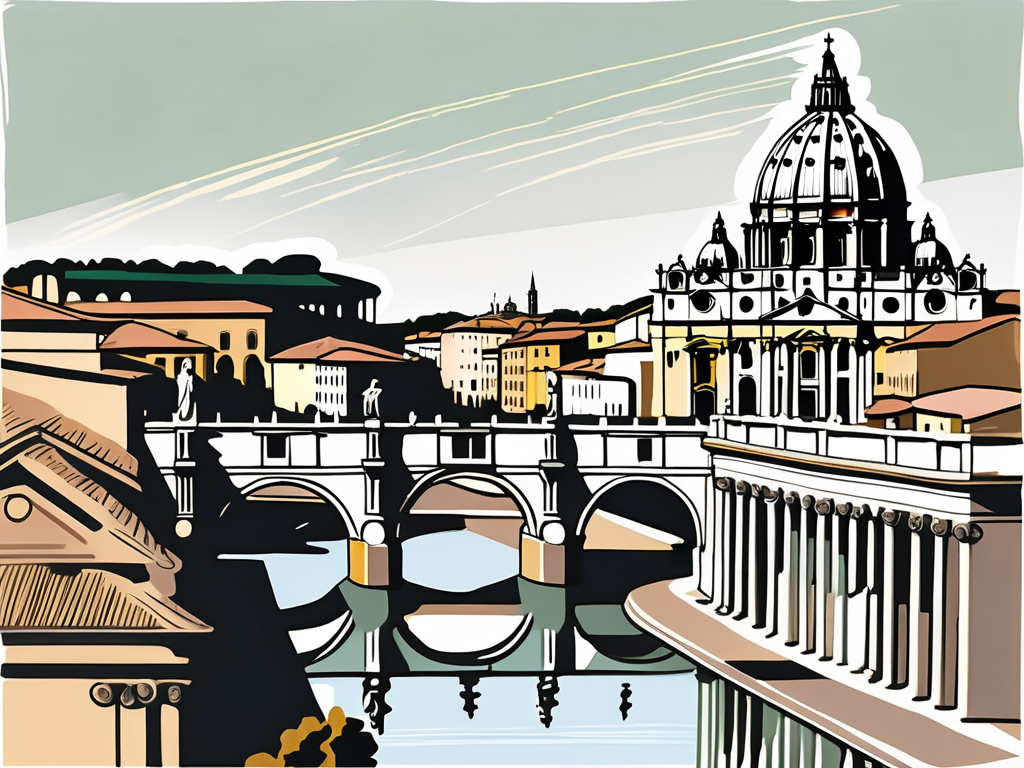Pope Honorius III holds a significant place in the annals of Catholic history as a revered figure. From his early life and ascension to the papacy to his influential contributions to canon law and involvement in the Crusades, his legacy shaped the Church in profound ways. Additionally, his patronage of the arts and education left an indelible mark on religious art and architecture. Let us delve into the life and impact of this remarkable Pope.
Early Life and Ascension to Papacy
Born into a noble family, Honorius III came into the world during a time of great social and political upheaval. His birth and early years were marked by turbulent events that would shape his character and lay the foundation for his future as Pope.
From a young age, Honorius III displayed a thirst for knowledge and a deep curiosity about the world around him. His parents, recognizing his intellectual potential, provided him with the best education available, ensuring that he received a comprehensive understanding of various subjects, including theology, philosophy, and history.
As he grew older, Honorius III’s passion for theology became increasingly evident. He spent countless hours studying ancient religious texts, engaging in theological debates, and seeking guidance from renowned scholars of the time. His dedication and unwavering commitment to his faith earned him the admiration and respect of his peers.
Despite his noble upbringing, Honorius III remained humble and empathetic towards the less fortunate. He actively participated in charitable activities, providing aid and support to those in need. His acts of kindness and compassion endeared him to the people, further solidifying his reputation as a man of integrity and virtue.
As his reputation grew, so did his influence within the Church. Honorius III’s exceptional leadership skills and profound understanding of religious doctrine caught the attention of high-ranking clergy members. Recognizing his potential, they appointed him to various positions of authority within the ecclesiastical hierarchy, allowing him to further develop his skills and gain invaluable experience.
Years of dedicated service and tireless efforts to promote the teachings of the Church culminated in Honorius III’s ascension to the papacy. The College of Cardinals, impressed by his wisdom, knowledge, and unwavering commitment to the faith, elected him as the successor to the Holy See.
As Pope, Honorius III brought with him a wealth of knowledge and a strong sense of purpose. He was determined to ensure the spiritual well-being of the faithful and to address the pressing issues of his time. His papacy was characterized by a deep dedication to reform, both within the Church and in society at large.
Throughout his tenure, Honorius III worked tirelessly to promote peace and unity among warring factions, using his diplomatic skills to mediate conflicts and foster reconciliation. He also focused on strengthening the Church’s influence and authority, implementing measures to combat heresy and promote religious education.
Under his guidance, numerous religious orders flourished, and the Church experienced a period of intellectual and spiritual growth. Honorius III’s commitment to the pursuit of knowledge led to the establishment of educational institutions and the patronage of scholars, contributing to a revival of learning and culture.
Despite the challenges he faced, both within the Church and in the secular world, Honorius III remained steadfast in his mission to uphold the teachings of Christ and guide the faithful. His papacy left an indelible mark on the history of the Catholic Church, and his legacy continues to inspire and guide future generations of religious leaders.
Pope Honorius III and the Church
During his papacy, Pope Honorius III introduced a series of bold reforms and policies that aimed to rejuvenate the Catholic Church and strengthen its influence. Recognizing the need for adaptation to the changing times, he sought to address the concerns of both the clergy and the laity, ensuring a harmonious relationship between the two.
One of Honorius III’s most notable reforms was his emphasis on the spiritual and moral education of the clergy. Understanding the significance of a well-informed clergy, he recognized the importance of priests and bishops being well-versed in theology and equipped to guide their congregations. To achieve this, he established educational institutions and encouraged the study of theology, fostering a generation of knowledgeable and dedicated clergy.
Furthermore, Honorius III’s policies aimed at bridging the gap between the clergy and the laity. He believed that a strong sense of community and shared responsibility was essential for the growth and prosperity of the Church. To promote this, he encouraged greater interaction between priests and their parishioners. He urged priests to actively engage with their congregations, listening to their concerns, and providing spiritual guidance and support. This approach not only strengthened the bond between the clergy and the laity but also fostered a sense of belonging and unity within the Church.
In addition to his focus on education and community-building, Honorius III also recognized the need for administrative reforms within the Church. He sought to streamline the bureaucratic processes and ensure transparency and accountability. Under his leadership, new guidelines were established to govern the financial management of the Church, preventing corruption and misuse of funds.
Moreover, Honorius III was a strong advocate for the protection and preservation of sacred sites and relics. He understood the significance of these religious artifacts and their ability to inspire faith and devotion among the faithful. As a result, he implemented measures to safeguard these treasures, ensuring their proper care and maintenance.
Overall, Pope Honorius III’s papacy was marked by a commitment to revitalizing the Catholic Church and strengthening its influence. Through his emphasis on education, community-building, administrative reforms, and the preservation of sacred sites, he laid the foundation for a more vibrant and resilient Church that could effectively address the needs and concerns of its followers.
Contributions to Canon Law
Perhaps one of Honorius III’s most enduring legacies is his contributions to canon law. He recognized the need to codify and organize the Church’s legal system to better serve its faithful.
During his papacy, Honorius III made major changes and additions to canon law, laying the groundwork for the Church’s legal system as we know it today. His reforms provided clarity and consistency, ensuring fair and just treatment for all members of the Church.
The impact of Honorius III’s work on canon law cannot be overstated. His reforms have influenced countless legal minds throughout history and continue to shape the Church’s legal framework to this day.
Role in the Crusades
Pope Honorius III played a pivotal role in the Crusades, a series of holy wars that aimed to secure Christian control of the Holy Land. His involvement in the Fifth Crusade showcased his diplomatic skills and dedication to the cause.
During the Fifth Crusade, Honorius III worked tirelessly to rally support from European rulers and forge alliances with key players in the region. His diplomatic efforts paved the way for a united front against the forces opposing the Crusaders.
Despite facing numerous challenges, including the untimely death of Emperor Frederick II, Honorius III’s unwavering commitment to the Crusades left an indelible mark on the history of the Church and the quest for the Holy Land.
Patronage of the Arts and Education
Not content with his achievements in the political and legal spheres, Pope Honorius III also made significant contributions to the arts and education. He recognized the transformative power of these endeavors in spreading the message of the Church and inspiring future generations.
Honorius III’s support for the University of Paris, one of the most prestigious educational institutions of the time, fostered intellectual growth and theological exploration. His encouragement of religious art and architecture also left an enduring imprint on the Catholic Church’s aesthetic traditions.
Under his patronage, artists and architects thrived, creating masterpieces that would inspire awe and devotion for centuries to come.
Influence on Religious Art and Architecture
Honorius III’s love for religious art and architecture led to the construction of magnificent cathedrals and basilicas. The grandeur and beauty of these structures became a testament to the glory of God and a source of inspiration for worshippers.
Architects and artists during Honorius III’s papacy were encouraged to incorporate symbolism and divine imagery into their works, creating a visual language that transcended words. The intricate details and soaring arches of these buildings were a testament to the creativity and devotion of the faithful.
Support for the University of Paris
The University of Paris flourished under Honorius III’s patronage. His support allowed renowned scholars to teach and conduct groundbreaking research that would shape theological thought for generations to come.
Honorius III recognized the importance of education and sought to provide scholars with the tools they needed to explore and expand their understanding of theology. His encouragement of intellectual pursuits paved the way for a Renaissance of knowledge within the Church.
In conclusion, Pope Honorius III left an indelible mark on Catholic history. His reforms and policies breathed new life into the Church, while his contributions to canon law continue to guide the faithful today. His involvement in the Crusades revealed his unwavering commitment to the cause of reclaiming the Holy Land. Lastly, his patronage of the arts and education enriched the Church’s cultural and intellectual spheres. Pope Honorius III’s legacy is one of reverence and admiration for his enduring contributions to Catholicism.
